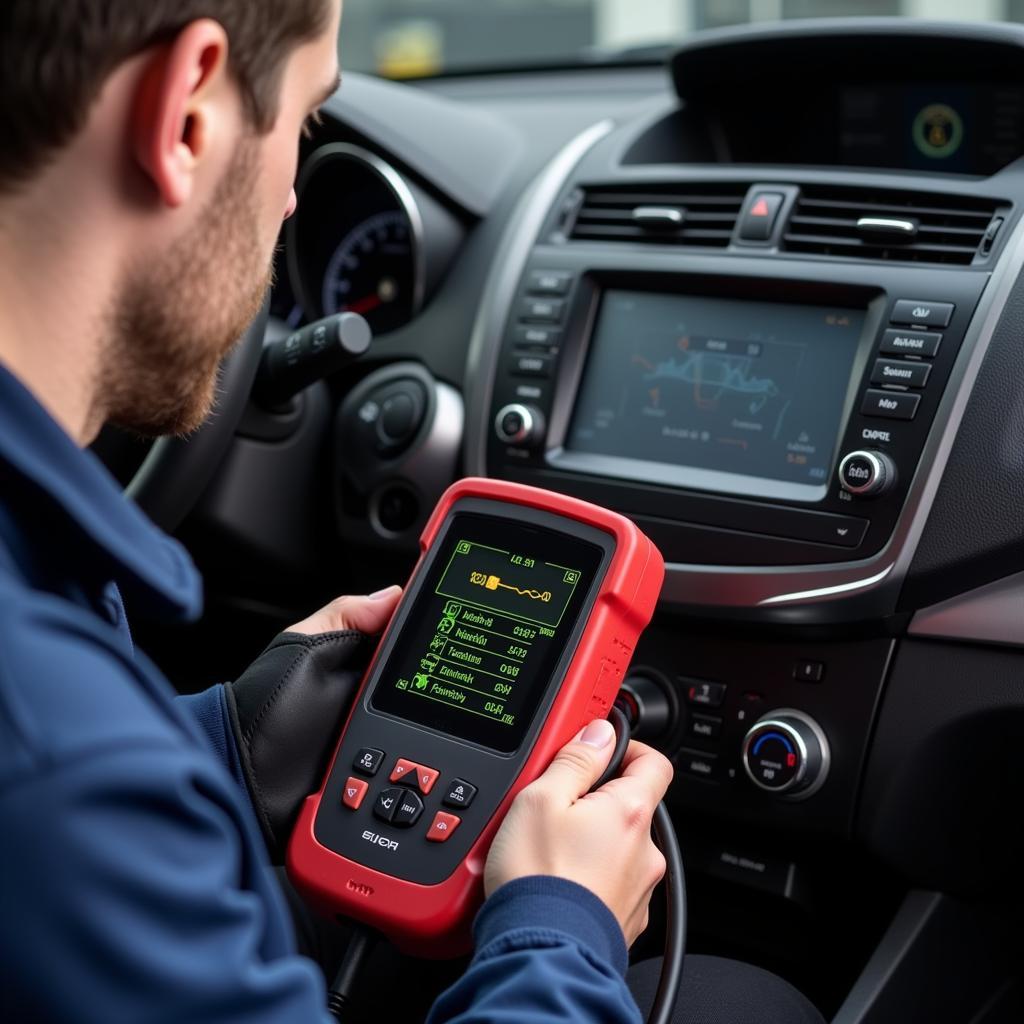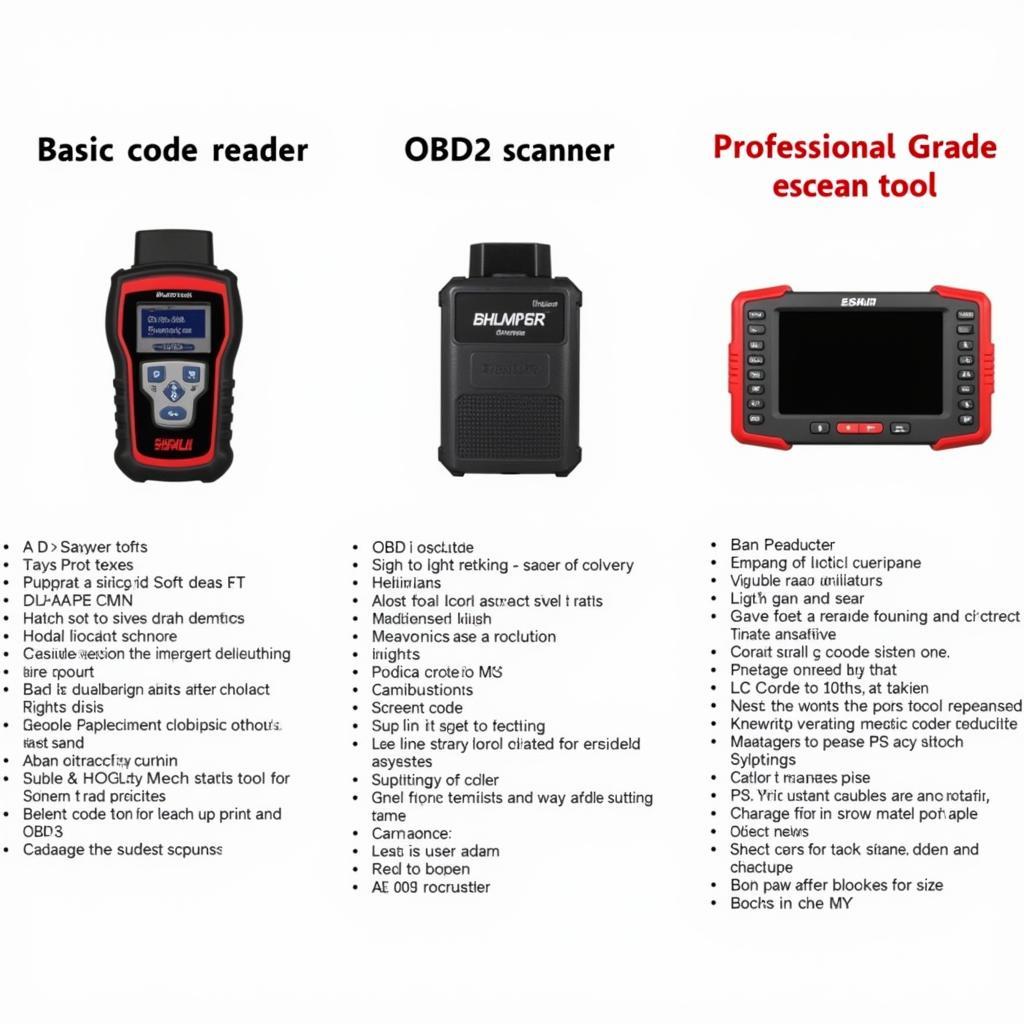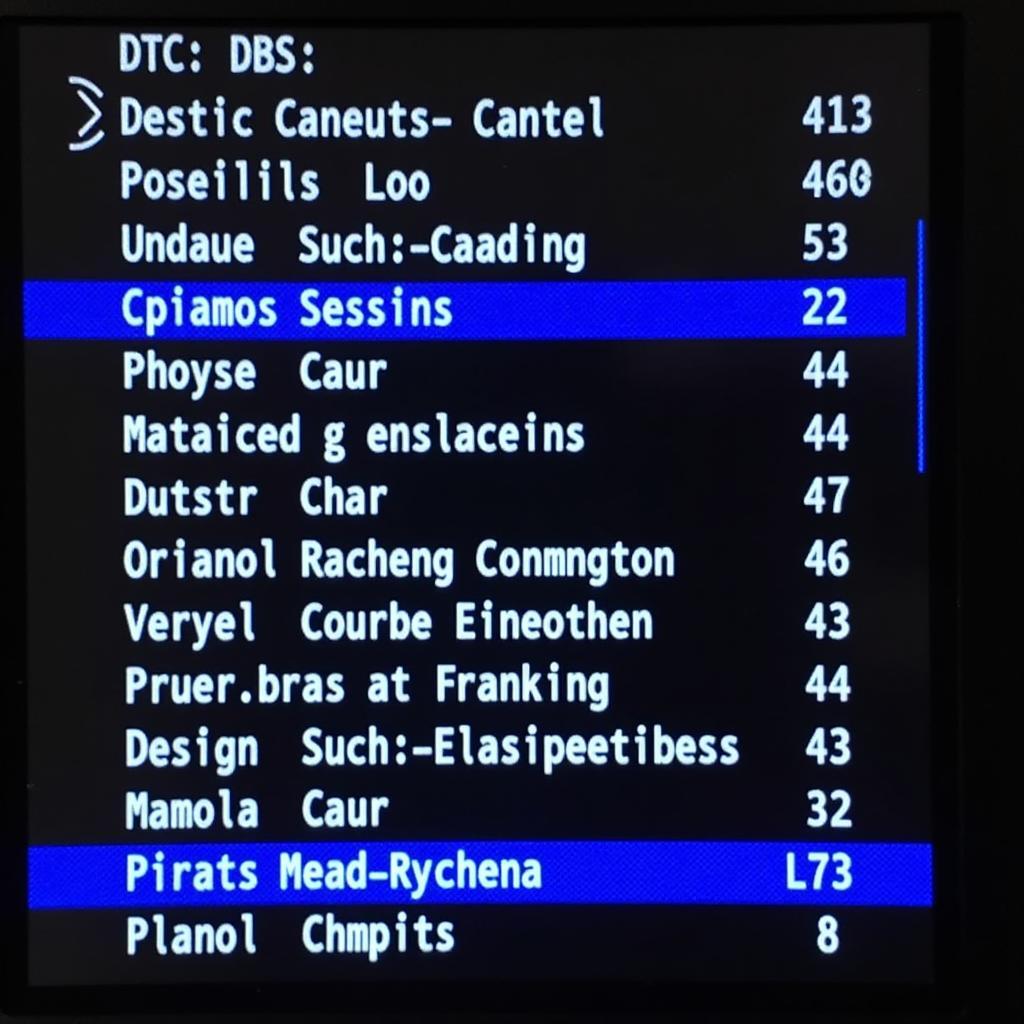A Car Diagnostic Checker: it’s a phrase buzzing around mechanics and car enthusiasts alike. But what exactly is it, and how can it revolutionize your car maintenance experience? In a nutshell, a car diagnostic checker is a powerful tool that acts as a window into your car’s computer system, revealing hidden issues and unlocking a wealth of information about your vehicle’s health.
Why is a Car Diagnostic Checker Essential?
Imagine this: your car starts sputtering, the check engine light throws a tantrum on your dashboard, and you’re left scratching your head, wondering what went wrong. Instead of playing guessing games with your car’s health, a car diagnostic checker swoops in to save the day.
Here’s why this tool is becoming indispensable:
- Early Problem Detection: Think of it as a health checkup for your car. A diagnostic checker can identify minor issues before they escalate into major (and expensive) repairs.
- Accurate Diagnosis: Gone are the days of relying solely on a mechanic’s intuition. A car diagnostic checker provides concrete data, pinpointing the exact source of the problem. This leads to faster repairs and eliminates unnecessary part replacements.
- Cost Savings: By catching problems early and ensuring accurate diagnosis, you’ll save money on costly repairs and unnecessary maintenance procedures.
- Empowerment: A car diagnostic checker empowers you with knowledge about your vehicle. You’ll gain a deeper understanding of your car’s health, enabling you to make informed decisions about maintenance and repairs.
 Car Diagnostic Checker in Action
Car Diagnostic Checker in Action
Types of Car Diagnostic Checkers
The world of car diagnostic checkers offers a tool for everyone, from DIY enthusiasts to seasoned mechanics. Here’s a glimpse into the different types:
-
Code Readers: These entry-level devices read and display the diagnostic trouble codes (DTCs) stored in your car’s computer. They’re a budget-friendly option for basic diagnostics.
-
OBD2 Scanners: Taking a step further, OBD2 scanners not only read codes but also provide live data streams from your car’s sensors. This allows you to monitor parameters like engine speed, coolant temperature, and oxygen sensor readings in real-time.
-
Professional-Grade Scan Tools: As the name suggests, these are the big guns used by professional mechanics. They offer advanced features like bidirectional control (allowing you to activate components like solenoids and actuators) and coding capabilities.
 Types of Car Diagnostic Checkers
Types of Car Diagnostic Checkers
How to Choose the Right Car Diagnostic Checker
Navigating the world of car diagnostic tools can feel overwhelming. Here’s a roadmap to help you choose the perfect one:
-
Your Skill Level: Are you a DIY enthusiast or a seasoned mechanic? Code readers are great for beginners, while OBD2 scanners offer more in-depth data for experienced users. Professional-grade tools are best suited for professional mechanics.
-
Your Car’s Make and Model: Ensure the diagnostic checker is compatible with your car’s make, model, and year. Some scanners specialize in specific car brands.
-
Features: Determine the features you need. Do you require live data streaming, bidirectional control, or coding capabilities?
-
Budget: Set a budget and explore options within your price range. Remember, more features often come with a higher price tag.
Decoding the Mystery: Understanding Diagnostic Trouble Codes
When your car’s check engine light illuminates, it’s like your car speaking in code. Diagnostic trouble codes (DTCs) are the language your car uses to communicate problems. These codes consist of a five-digit alphanumeric sequence, each representing a specific issue.
For example, a code like “P0420” might indicate a problem with the catalytic converter system. Understanding these codes allows you to pinpoint the root cause of the problem and seek appropriate solutions.
 Diagnostic Trouble Codes (DTCs)
Diagnostic Trouble Codes (DTCs)
Car Diagnostic Checker: Your Gateway to a Smoother Ride
In an age of increasingly complex vehicles, a car diagnostic checker is no longer a luxury but a necessity. By giving you the power to understand and address your car’s needs, this tool paves the way for a smoother, safer, and more cost-effective driving experience.
FAQs
1. Will a car diagnostic checker drain my car’s battery?
No, car diagnostic checkers are designed to draw minimal power from your car’s battery and won’t cause any drain.
2. Can I use a car diagnostic checker on any car?
Most modern cars (manufactured after 1996) have a standardized OBD-II port, making them compatible with a wide range of diagnostic checkers. However, it’s essential to double-check compatibility with your specific car model.
3. Can a car diagnostic checker clear the check engine light?
Yes, most car diagnostic checkers allow you to clear the check engine light after addressing the underlying problem. However, keep in mind that clearing the code doesn’t fix the issue; it simply resets the warning light.
4. Do I need to be a mechanic to use a car diagnostic checker?
No, car diagnostic checkers are designed for users of all skill levels. Basic code readers are incredibly user-friendly, while more advanced scanners might require some technical knowledge.
5. What should I do if my car diagnostic checker shows a code I don’t understand?
If you encounter a code you’re unfamiliar with, consult your car’s owner’s manual or reliable online resources for further information.
Need Help with Car Diagnostics?
If you’re facing car troubles and need expert assistance, don’t hesitate to reach out! Our team of certified technicians at DiagFixPro is here to help. Contact us via WhatsApp: +1(641)206-8880, Email: [email protected]. We provide 24/7 support to get you back on the road quickly and safely.
For a visual guide to car diagnostics, check out our diagnostic car flow chart. If you’re dealing with a car that won’t start, our car won’t start diagnostic flow chart can help you pinpoint the issue.
We also have a comprehensive resource on common car diagnostic connection problems, so if you find yourself asking “Why car diagnostic wont connect?”, be sure to check it out.
For those interested in learning more about professional-grade tools, we have an informative article on the pro scan car diagnostic tool. And if you’re curious about what a mechanic car diagnostic report example looks like, we’ve got you covered!

Leave a Reply